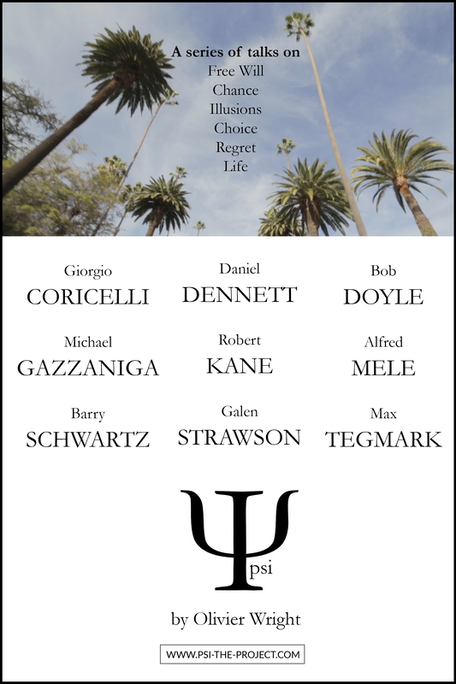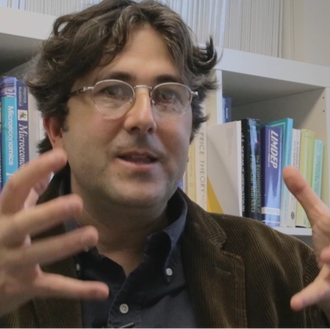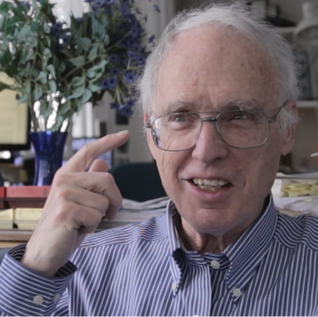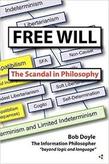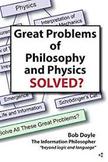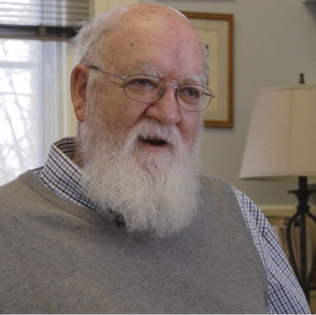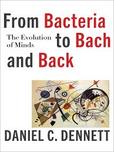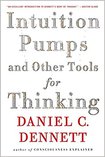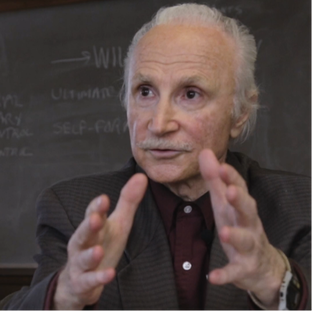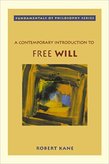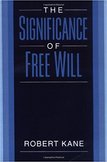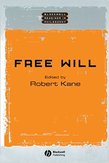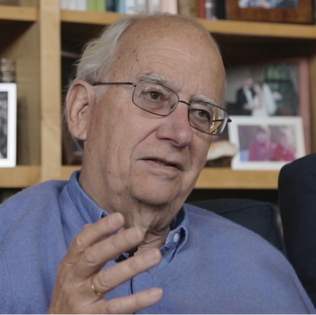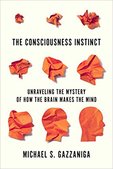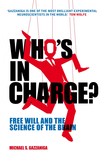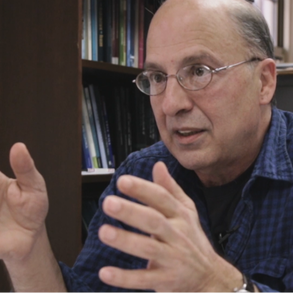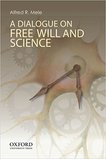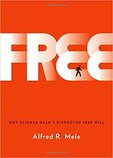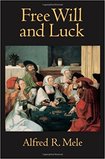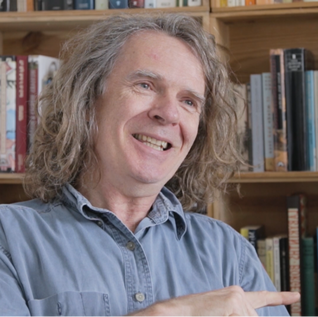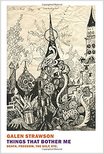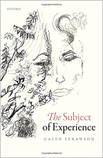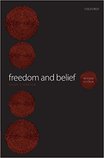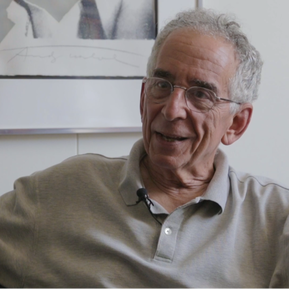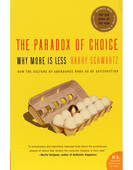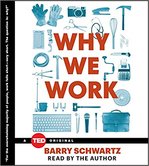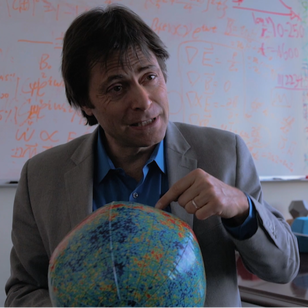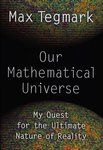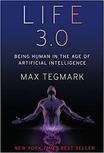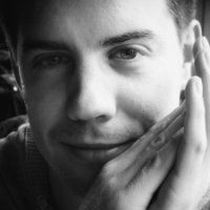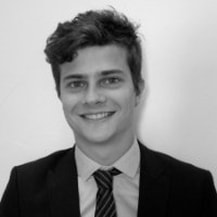Psi
Menu
|
The Talks are a series of 9 episodes researching the question of human freedom, both on a psychological and fundamental level.
|
To discuss these issues, 9 experts in the fields of philosophy, physics, neuroscience and psychology provide their insights.
Along the way, they offer more personal stories and anecdotes on the issues at hand.
Along the way, they offer more personal stories and anecdotes on the issues at hand.
Episode 1: Free Will
The Problem of Human Freedom
The Problem of Human Freedom
|
|
Are we free to be who we want to be? Do we have free will? If the world is determined, does this mean we don't have free will? In this episode, we will see how the answer to these questions depends on how we define free will and how philosophy is split between two very different conceptions of freedom: compatibilism, that says that free will is possible in a determined world because free will is just the ability to be morally responsible, and libertariansim that says that free will is not possible in a determined world, because it requires some real randomness, such that if we were to go back in time, we could actually have taken a different course. Is there a correct definition? How should we think about this given what we know about the physical world?
In this episode: Daniel Dennett, Robert Kane, Bob Doyle, Alfred Mele, Max Tegmark, Galen Strawson, Mike Gazzaniga
In this episode: Daniel Dennett, Robert Kane, Bob Doyle, Alfred Mele, Max Tegmark, Galen Strawson, Mike Gazzaniga
Episode 2: The Universe
Is There Any Randomness in Physics?
Is There Any Randomness in Physics?
|
|
The first condition for a libertarian kind of free will is that there be some real randomness in the universe. For centuries, classical physics has reliably shown the universe to be deterministic. However, since the early 20th century, quantum physics has opened the possibility of real randomness happening at the subatomic scale. In this episode, we will explore different interpretations of quantum physics, including parallel universes, to see what they have to say about the existence of real randomness in the universe - and therefore about the first condition of libertarian free will.
In this episode: Robert Kane, Bob Doyle, Max Tegmark, Alfred Mele
In this episode: Robert Kane, Bob Doyle, Max Tegmark, Alfred Mele
Episode 3: The Brain
Is There Any Randomness in Our Neurons?
Is There Any Randomness in Our Neurons?
|
|
For the libertarian kind of free will to be possible, it's not enough that there be quantum randomness in the universe. If it really exists, it also needs to have an effect where it matters for free will, i.e. in the brain, so that our decisions could be in some way undetermined. Is this possible? And if so, how does that make us any more free or responsible for our actions? Why doesn't that just make us randomly acting objects?
In this episode: Bob Doyle, Alfred Mele, Robert Kane, Mike Gazzaniga, Daniel Dennett
In this episode: Bob Doyle, Alfred Mele, Robert Kane, Mike Gazzaniga, Daniel Dennett
Episode 4: Libertarianism
Being the Authors of Our Lives
Being the Authors of Our Lives
|
|
If we grant the possiblity of quantum randomness having an effect on our brains, how does this now play into a useful conception of free will and allow us to be ultimately responsible for who we are? How does quantum randomness help construct this more intuitive kind of free will - that is, that we genuinely could have done otherwise, in a deep way - and what does that say about how our life paths actually evolve?
In this episode: Robert Kane, Galen Strawson, Bob Doyle, Alfred Mele
In this episode: Robert Kane, Galen Strawson, Bob Doyle, Alfred Mele
Episode 5: Compatibilism
The Moral Agents Club
The Moral Agents Club
|
|
If, on the contrary, there is no randomness in the universe (or, at least, in our brains), can we still be said to have free will? Libertarian philosophers will say no. But many other philosophers, called compatibilists, will say yes, because for them free free will is the ability to be morally competent, which doesn't need to be undermined by determinism. Understanding this kind of free will requires exploring the social origins of responsibility and morality itself.
In this episode: Daniel Dennett, Mike Gazzaniga, Bob Doyle
In this episode: Daniel Dennett, Mike Gazzaniga, Bob Doyle
Episode 6: Smoke & Mirrors
Being the Narrators of Our Lives
Being the Narrators of Our Lives
|
|
If we do indeed live in an entirely determined world, then what should we think of the libertarian kind of free will, this strong, intuitive sense we have that, if we were to turn back time, we actually really could have taken a different course? Is it an illusion? Perhaps free will is just one of the tricks of the master show of the brain: consciousness. Why do we believe in our own agency so strongly? And if it is an illusion, is it worthless?
In this episode: Alfred Mele, Daniel Dennett, Max Tegmark, Mike Gazzaniga, Bob Doyle, Robert Kane, Galen Strawson
In this episode: Alfred Mele, Daniel Dennett, Max Tegmark, Mike Gazzaniga, Bob Doyle, Robert Kane, Galen Strawson
Episode 7: Choice
The Paradox of Freedom
The Paradox of Freedom
|
|
Whether or not we are actually free with regards to physics, as social beings we believe we are free and modern societies are the most advanced playgrounds for free agents. Seeing as choice enhances freedom and that freedom enhances well-being, more choice should therefore enhance happiness. However, this equation between choice, freedom and happiness may be deeply flawed, as too much choice can lead to paralysis, bad decisions and regret - thus undermining our sense of agency over our lives.
In this episode: Barry Schwartz
In this episode: Barry Schwartz
Episode 8: Regrets
Parallel Universes of the Mind
Parallel Universes of the Mind
|
|
What is regret and why do we feel it? How does it relate to the notion of "counterfactuals" and our ability to imagine alternative possibilities? If we are free to chose our lives and empowered to control our destiny, why would so many people today struggle with lifelong regrets? We will see how the explosion of choice, coupled with our intuitive belief in our own free will, amplifies regret. But at the same time, by studying how regret operates in the brain, we come to uncover how regret is a very important psychological tool.
In this episode: Barry Schwartz, Giorgio Coricelli, Daniel Dennett, Mike Gazzaniga
In this episode: Barry Schwartz, Giorgio Coricelli, Daniel Dennett, Mike Gazzaniga
Episode 9: Happiness
Lessons for Living Free
Lessons for Living Free
|
|
Learning is the underlying drive for all scientific and philosophical pursuits, including the conversations held for this series. So what extra lessons could be gleaned from them? The nine men in this series had come from different parts of the world and spent their lives dedicated to pushing the boundaries of their specific fields of research. But what about their own lives? How had their own trajectories gone? How lucky had they been? What were their regrets? Despite their fundamental disagreements about matters of philosophy and science, their personal stories shared remarkable similarities, illustrating common themes about how to lead good lives.
In this episode: Barry Shchwartz, Bob Doyle, Daniel Dennett, Max Tegmark, Alfred Mele, Mike Gazzaniga, Robert Kane, Giorgio Coricelli, Galen Strawson
In this episode: Barry Shchwartz, Bob Doyle, Daniel Dennett, Max Tegmark, Alfred Mele, Mike Gazzaniga, Robert Kane, Giorgio Coricelli, Galen Strawson
THE EXPERTS
Giorgio Coricelli
|
Giorgio Coricelli is an Italian Economist and Psychologist who is professor at the University of Southern California. His area of research include the role of counterfactual emotions, such as regret and envy, in decision making (fMRI, Orbitofrontal patients, and developmental studies) and how the brain encodes learning signals (regret/fictive learning, reputation building, transfer learning). He uses a fundamentally multidisciplinary approach (Neuroeconomics), drawing from behavioral and experimental economics, game theory, neuroimaging (fMRI), neuropsychology (patients studies), and cognitive neurosciences. Find out more about his reasearch at USC here. |
|
Bob Doyle
|
|
Bob Doyle is an American astrophysicist, philosopher and entrepreneur. He is an Associate in the Harvard Astronomy Department. He holds several patents, is the inventor of a number of computer programs (such as MacPublisher) and helped create the first Podcast in 2003.
|
|
Daniel Dennett
|
|
Daniel Dennett is an American philosopher, writer, and cognitive scientist. He is the co-director of the Center for Cognitive Studies and Professor of Philosophy at Tufts University. He has written extensively about consciousness and free will, as well as being an outspoken atheist and secularist. Find more of his research at Tufts here, watch his TED talk on consciousness or this conference on free will.
|
|
Robert Kane
|
|
Robert Kane is an American philosopher, Distinguished Professor of Philosophy at the University of Texas at Austin. He is considered the leading philosopher arguing for a libertarian kind of free will and is the editor of the Oxford Handbook of Free Will, widely considered the standard introductory book for philosophy student on the subject of free will. Read more about his work at roberthilarykane.com.
|
|
Michael Gazzaniga
|
|
Michael Gazzaniga is an American neurobiologist. He is professor of psychology and head of the SAGE Center for the Study of the Mind at UC Santa Barbara. Considered the father of cognitive neuroscience, he is a member of the American Academy of Arts & Sciences and the National Academy of Sciences. He has led pioneering studies on split brained patients. Find out more about his research at UCSB here.
|
|
Alfred Mele
|
|
Alfred Mele is an American philosopher and the William H. and Lucyle T. Werkmeister Professor of Philosophy at Florida State University. He is also the Director of the Philosophy and Science of Self-Control Project and past director of the Big Questions in Free Will Project (2010-2013). Mele develops positive conceptions for both compatibilist and incompatibilist free will. Find out more about his research at FSU here.
|
|
Galen Strawson
|
|
Galen Strawson is a British analytic philosopher who works primarily on philosophy of mind and metaphysics (including free will and the self). He has been consultant editor at The Times Literary Supplement as well as a regular literary critic at The Observer, The Sunday Times and The Guardian. He holds a chair in the Department of Philosophy at the University of Texas, Austin. Find out more about his work on his personal website.
|
|
Barry Schwartz
|
|
Barry Schwartz is an American psychologist who is Emeritus Professor at Swarthmore College and Professor at UC Berkeley. Schwartz's research addresses decision-making, frequently publishing editorials in The New York Times, illuminating the underlying psychological plagues of our time in western societies. His TED talk on the paradox of choice and his TED talk on practical wisdom have been seen over 13 million times.
|
|
Max Tegmark
|
|
Max Tegmark is a Swedish-American cosmologist who teaches at MIT. He is the scientific director of the Foundational Questions Institute and the co-founder of the Future of Life Institute. Tegmark has appeared in programs on the BBC and Science networks and is a prominent voice speaking about the nature of reality, parallel universes, the physical correlates of consciousness, and most recently artificial intelligence.
|
Original Music of The Talks Series
[email protected]
© COPYRIGHT 2022. ALL RIGHTS RESERVED.
© COPYRIGHT 2022. ALL RIGHTS RESERVED.
